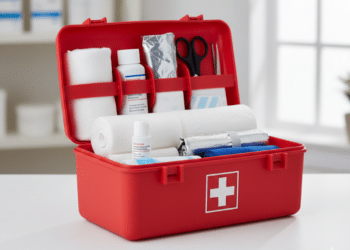D you remember your first day of school? How about starting a new job? Or the feeling you get before trying something you never have done before? Chances are, it’s a mixed bag, with feelings of fear and anxiety combined with the excitement you get with the prospect of a new experience.
Anxiety and even some amount of fear can be a completely natural response to novel experiences. They’re the mind’s reaction to something it has never encountered before. When they become paralyzing, however, is when they’ve become a real problem.
Routine – How Good Are They For us?
A lot of people rely on routines. Sometimes, they’re labelled as doing things on autopilot, but they’re not all that bad. Routines allow us to do the same things daily, and to do them in a way that doesn’t change. They eliminate the need to make difficult decisions, encourage discipline, and even have positive impacts on mental health. It’s been shown that having a routine in place, especially when it comes to working habits, helps maintain a healthier sleeping cycle, and can even increase productivity.
Routines, or habits, are made and reinforced through past experiences. More often than not, they’re based on the things that have worked out for us before. For example, if you used to do your homework right after school as a child, and saw the benefits of this routine (better grades, more free time during the weekends, parental approval), then it’s expected that you’ve developed it into a positive habit. But, if in college you managed to get away with cramming before a test, that too could have turned into a learned behaviour.
Unfortunately, though, learned behaviours can betray us. What worked in college may not pan out as successfully in the workplace, and doing things last minute is a bad habit we still hold, yet it’s not serving us any longer.
Still, because our minds are conditioned (trained) to think that that’s the right way to do something, we may be reluctant to try something new.
Breaking Free From Old Habits and How It Creates Anxiety
The moment we try to eliminate old behaviours, anxiety and fear tend to rear their ugly heads. This is because doing something new can be perceived by the brain as a source of stress. Being faced with an unknown situation can cause worry and tension, even when there’s very little to worry about.
A new school or job, for example, puts us into the position of having to fit into an unknown environment, establish relationships with unknown people, and most of all, prove our worth to new superior figures. This pressure can easily start causing panic, sleep problems, excess sweating, heart palpitations, nausea, or muscular tension. For some people, these symptoms become so overwhelming that they cause paralysis, and an inability to move forward.
So Why Put Yourself Through this Stressful Process?
Well, even though it’s so much easier to stay in your comfort zone, change can be a tremendously positive thing. It can inspire, or set in motion, personal and professional growth. It can bring about better physical and mental health, or even allow you to realize a dream you’ve always had. It can allow you to learn new skills, or share your unique knowledge and outlook on a certain topic.
For example, if you’ve always wanted to take up writing, doing so even later in life, is not something you should shy away from. Even if you’re afraid of failure, it’s better to try your hand at a skill than to regret not having done it 10, 20, or 50 years from now. Because this is an unfulfilled dream of yours, you can do concrete things to help you manage your anxiety. Give yourself a test period. Or, if you’re a non-native speaker, invest in your knowledge and try to maximize your performance on internationally recognized tests such as the IELTS writing task. You can even start writing for yourself, and allowing your material to sit untouched for a couple of months before you decide to submit it to your favourite website, start a blog, or try to publish.
Embracing Change
Change is such a great thing that working through fear and anxiety is well worth the mental effort. Although the process can be difficult, there are some things you can do to make yourself slightly more comfortable.
• Eating a healthy diet rich in micronutrients and eliminating mood-altering drinks such as coffee or energy drinks can have a positive impact on anxiety.
• Exercising and getting plenty of sleep are both beneficial in eliminating stress and improving mood.
• Keeping a journal can help you face your fears in a safe and relatively objective way.
• Getting counselling is the best way to work through more serious anxiety disorders.
• Pharmaceuticals or natural supplements may sometimes be used (as prescribed by your doctor) as a way of treatment.
Being afraid of things that haven’t happened yet is natural. Most of us deal with these feelings, if dialysis, then definitely often. But working through this fear and anxiety is, eventually, the only way to move forward in life.
So, if you’ve been afraid to try something, yet you’re drawn to the experience – collect your courage and give it a go. Chances are, you’ll find that your worries were for nothing in the first place and that you’ll have a wonderful time doing something that’s been your wish all these years.











